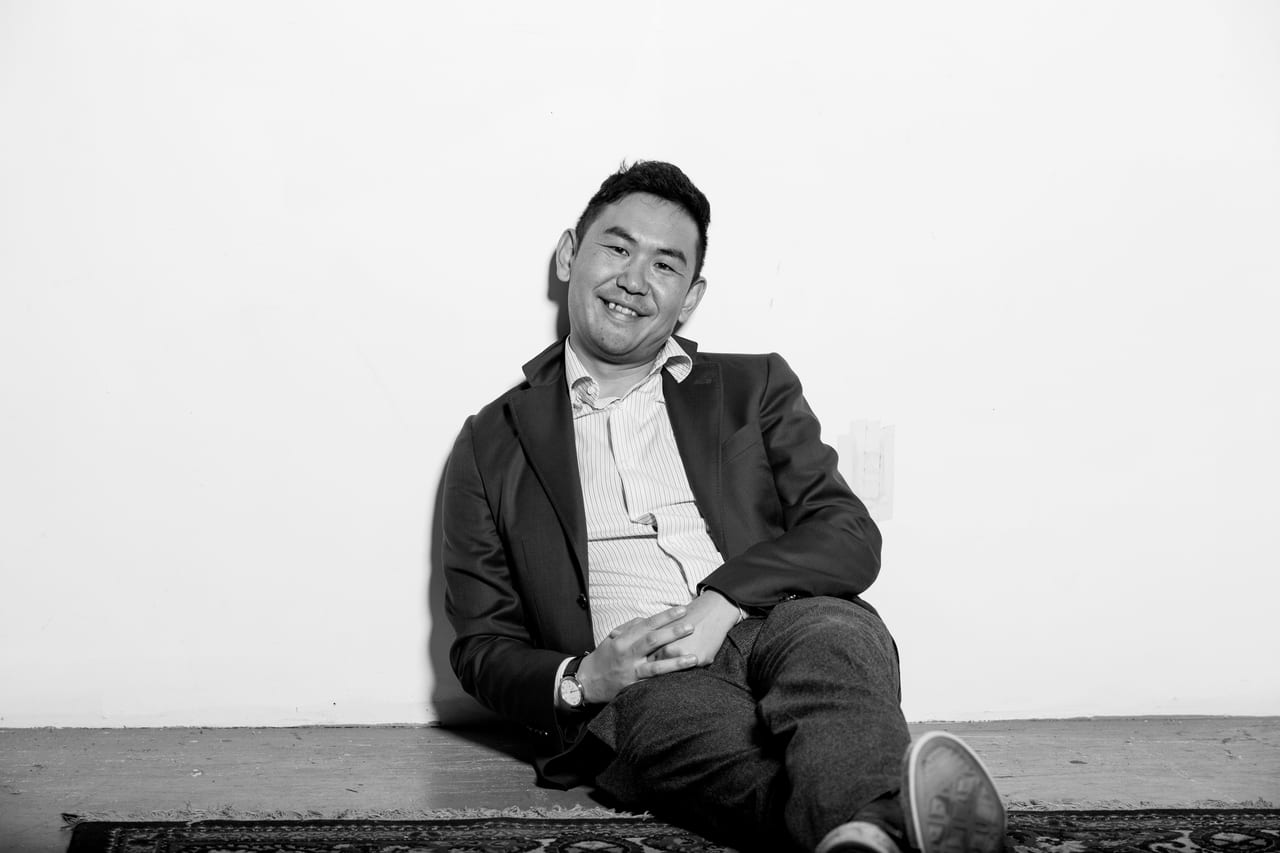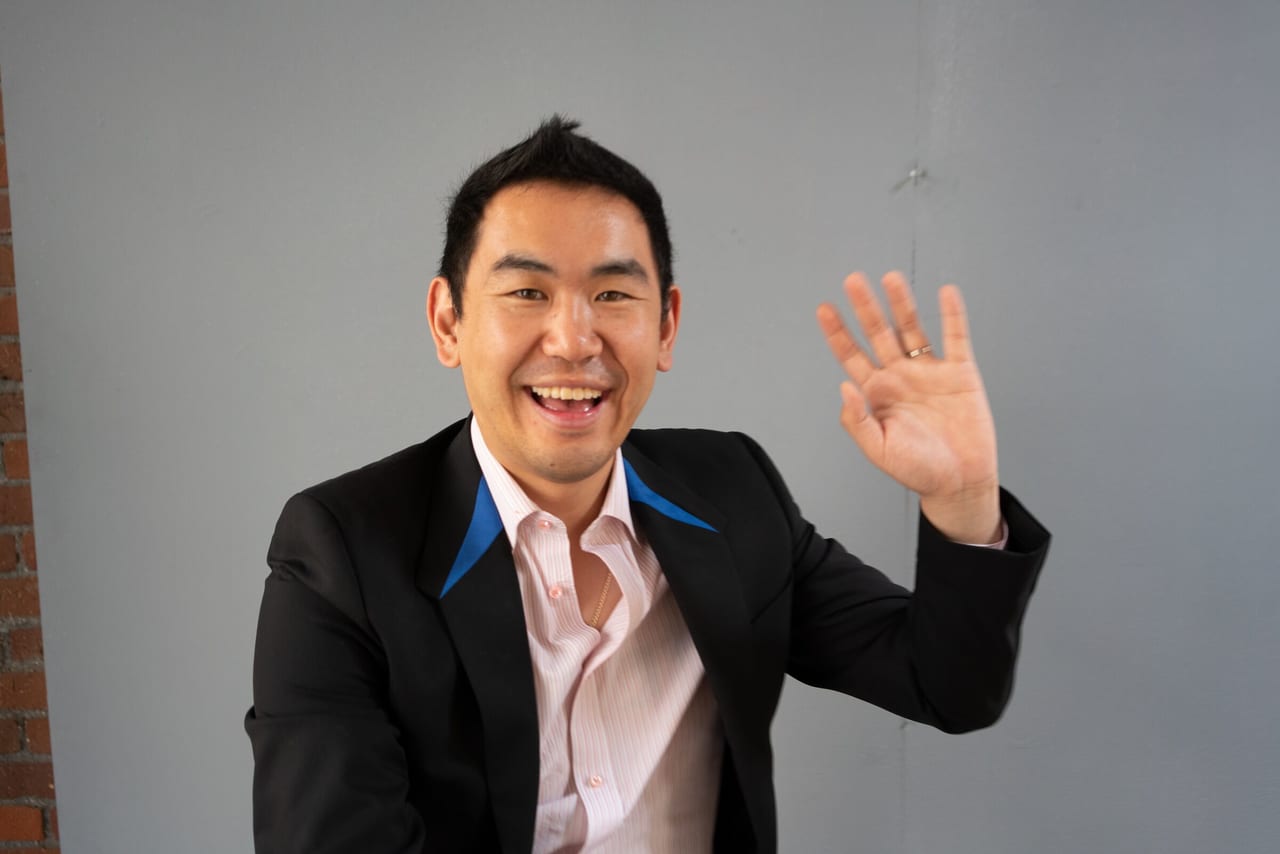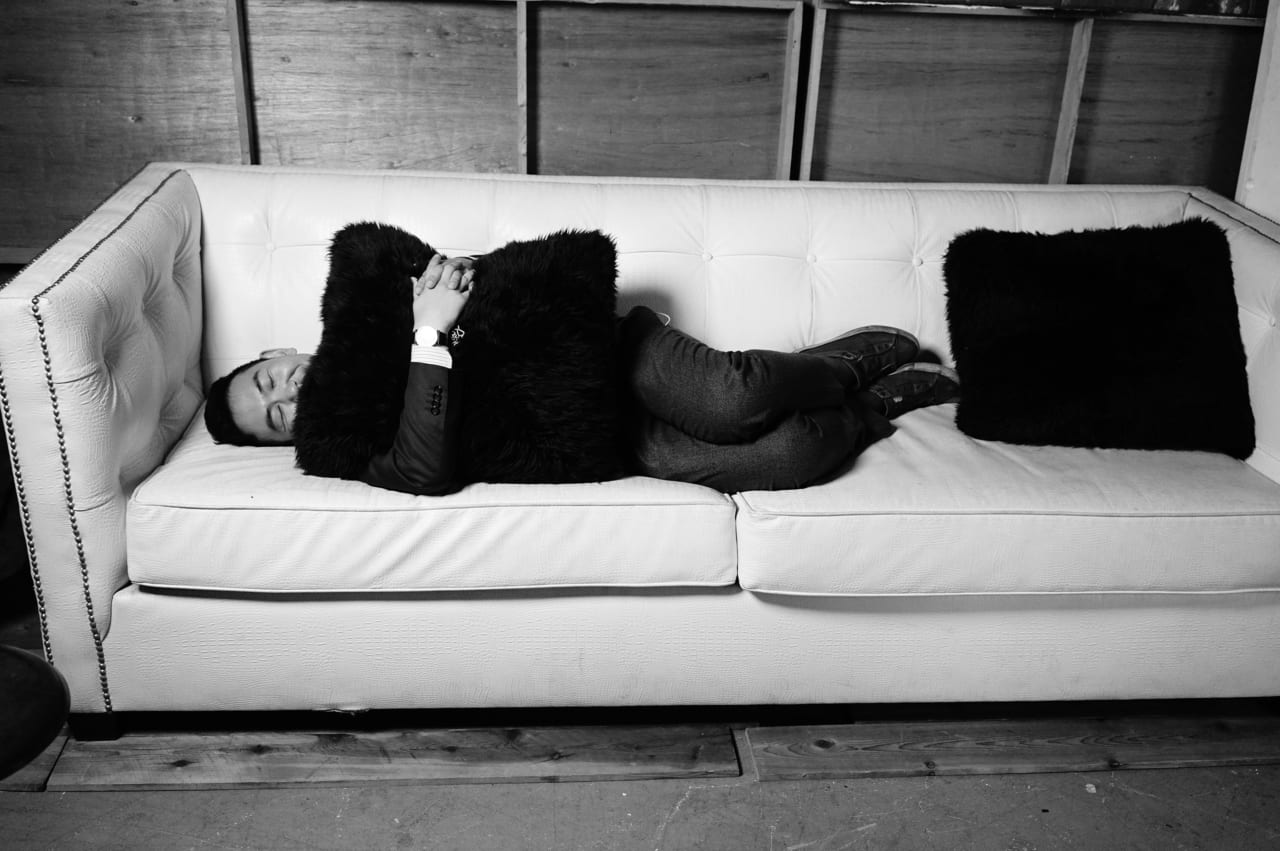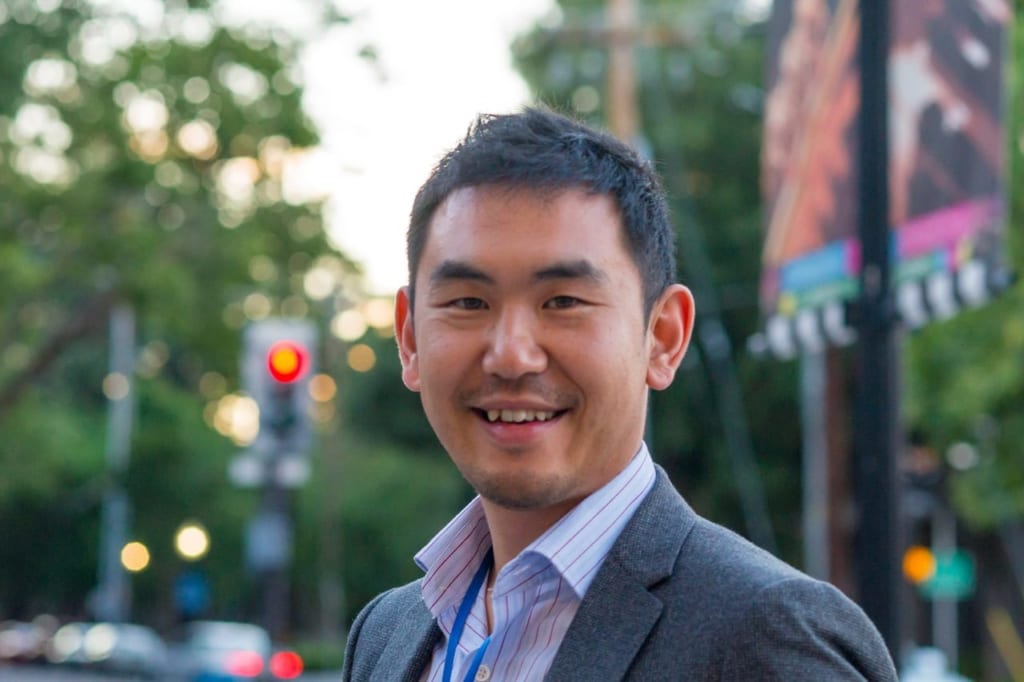We sat down today to speak with top marketing influencer Leonard Kim, who achieved an amazing 10 million reads on his online content within the first year-and-a-half of publishing. Leonard has been praised for being an authentic individual who is not afraid to show his vulnerabilities. He took on the stage at TEDx UC Irvine to give a talk about why you should let your fears guide you. His honesty in facing fears is a unique characteristic that naturally draws a crowd.
Today we dove into Leonard’s guiding motto in life, embracing the bad with the good, and being unafraid of discussing failures.
An Interview with Leonard Kim: The Newest Callmart Ambassador :
1. Getting to Know Leonard Kim
So, what is your motto?

If you really look at how we act in the world today, considering school, work, or how you were raised by your parents, we were given all these invisible roles and were told to act a certain way. We’re carrying out all these acts in life, and these acts are transferred digitally too. On LinkedIn I act a bit more business-like, on Facebook we might share photos of our families, or on Instagram we’re sharing the best moments of our lives. What we’ve done is compartmentalized our lives in so many different ways. We’re carrying 10-20 different personalities. For example, how you act with your mom, with your brother, your best friend, and so forth. This could be why we have so much depression and anxiety in society right now. People feel more disconnected than ever.
So my motto is to go out there and be your whole, authentic self. That includes the good, the bad, and your version of the ugly. When you showcase all different sides of you and you’re completely transparent about who you are, you don’t have to have all these different hats that you put on for every single different situation. By only carrying one, congruent, fluid personality, you’ll be able to make better relationships, you’ll be able to go out there and have less depression, less anxiety, less worry, you’ll be able to maneuver extremely well in your career, build comradery and trust with others, and pretty much put your life on the fast track for success.
It’s definitely not easy to embrace both the bad and the good these days. How did you embrace the bad, the good, and the neutral to just become, well, yourself?

Well, if you think about it, this programming we have in society with how we were raised, school systems, work environments, dealing with different people, we’re told to do all these different things. The way I was really able to embrace it was by going out there and going against the norm, and trying to be different. At the very beginning when I started creating content, I saw that it was kind of like what you see on Instagram. Everyone putting up photos, everyone talking about their best moments, everyone going out there and putting out their highlight reel of their very best moments. If you’re anything like me and you look at all this content, you just kinda go, “Hmm, well my life kinda sucks.” I’m sitting here, laying in bed watching TV shows because I’m kind of depressed. Or, I just got into a fight with my spouse and things aren’t as great as they seem. What it really does, when you look at all that stuff, is that instead of building a connection with others it creates this disconnect.
In my grandparents’ time people went out there and said “Hi” on the street, waved to each other, talked to each other. Then in our parents’ time it switched to this movement—“How do I go out there and get more stuff? How do I get the bigger house?” And that kind of mentality moved on to today where we ask, “Who can showcase who’s happier?”

When I noticed this, I thought, “Why don’t I take a different approach? Why don’t I try going out there and talking about all the things that I suck at?” A lot of people said, “Hey, I wouldn’t do that, you’re going to throw your career off the deep end, people are going to go out there and say bad things about you.” And those were even some of the thoughts that I had! But looking at the track record of success thanks to admitting my failures, it resulted in 14 million reads on my content, my income tripling a few times, getting a book deal, and doing all these different things.
We’re not comfortable with going out there and sharing our bad moments because we feel like we’re the only ones who experience it. But that doesn’t matter. If you’ve failed at something and are sad about it, chances are there are tens of thousands, if not millions, of people who experienced something similar and aren’t happy about it. And we feel like we’re all alone. So you have to take on the mentality of, “You know what? I’m not the only one who experiences this stuff, let me go out and share it.” And by sharing this stuff that I see as my weaknesses, it really becomes my strength.
By going out there and sharing these things, instead of creating a disconnect with my audience and a disconnect with myself, I let truth unite people at an extremely rapid pace and built camaraderie that usually takes months or years to build.
I find that people get really awkward when I talk about my failures. They especially don’t want to talk about themselves. Do these topics polarize your audience a bit?

People are waiting for someone to go out there and start sharing stuff like this. They’re thinking, “I need to let something off my chest, but I’m too scared to do it.” They don’t even know who to go out and talk to, because there aren’t that many resources. But there’s a moment where I’ve sat in a car crying with a person, and we’ve had that emotional bond where it’s like nothing can break us apart. That’s because both sides have opened up, and that’s where the camaraderie comes into play.
Now what you’ll see as time progresses is that people are going to be a bit more open about sharing things like this. Sometimes what it takes is going outside of those 1-on-1 conversations and sharing on the digital platform. And it’s a little bit about framing too. If you think, “I just had the biggest failure of my life and I feel like everything’s completely falling apart”, then people are naturally going to have that tendency to move away from you. If you’re able to frame it the right way, then people will go out there and listen to you instead.
So, why did you start InfluenceTree, and what did you want to achieve by helping people build their personal brands?

In the first year and a half of writing, I had 10 million reads on my content. In that whole time frame, I received thousands and thousands of messages saying, “You’re inspiring, here let me tell you about my personal story, let’s create a connection”. Hundreds and hundreds of messages saying, “Can you mentor me? Can you show me what you did?” And my initial response was to say “no”, because I didn’t really have time to do that. I had a job, I had writing, and I was going to school.

About a year later in 2015, it dawned upon me that wait, so many people are asking me to mentor them. Why don’t I set up a course so I can teach people everything I know? Before I even launched that, I needed to make sure people actually wanted this. We got an article in Fortune, Inc., and Entrepreneur to find out if this was something people would actually be interested in. A thousand people clicked back through to the InfluenceTree website, and we had a hundred messages saying that they wanted the product. That’s when we started setting up all the course materials and outlining all the insights to building your personal brand or growing your social media. We ended up landing stuff with Cisco, Dropbox, venture capitalists, New York Times bestselling authors—people who wanted us to work on their businesses and all these other people who wanted to have us build their personal brand. Behind the scenes, we work on building the personal brands of a lot of successful people. It’s cool! People told me I should do it, so I tried it!
In a way, you had the demand to be a mentor even before you had the idea.

I don’t think I ever really had the idea. It’s kind of weird because a lot of people have these crazy ideas where they have a “calling” that comes to them. But there are so many people in the world who don’t really have a calling. And when we think about most people, not many of us have that calling—“Oh, I’m destined for greatness and I’m going to create this product or change the world in this way.” If a person hasn’t created anything yet and they are just waiting around for that brilliant idea to come about so they can “change the world”, I think the reality is that you need to have something beforehand.
It’s almost like you need to arm yourself for whatever opportunity happens to show up.

Yeah! The more flexibility you have the more opportunities come your way. Then you can sort out what the right opportunity is for you, as opposed to going out there and trying to figure out the right opportunities for yourself. A lot of people don’t have these grandiose plans. Most of us, we just go with the flow. It’s easy to feel that if you go with the flow you won’t achieve much, but I went with the flow and I achieved a decent amount of accomplishments.
We consider you to be an influencer. You’ve gotten to the point where people follow you, they want your advice. What do you think an influencer is?

I think it’s hard to put a definition to that term. If we look to media outlets to see what an influencer is, it’s someone who’s just taking pictures on Instagram and traveling the world. But to me, that’s not really an influencer. That’s what society says is an influencer. An influencer is anyone, really. For example, there are stay-at-home moms that have a group of 20 people in a book club, and when they recommend a book, all 20 of them go out there and buy it, read it, and discuss it. There are some people who are out there with entry level jobs, but suggest something to their boss, and the next thing you know there’s a whole new process that’s actually being executed at the company.

A lot of people think that to make change, we must have positions of power. Not many of us realize that it’s possible to go out there and lead without authority, and go out there and drive change. What influence really comes from is really connecting with people at a human level, building trust with them, and sharing ideas. You put your heads together and come up with a plan. When you look at things on a bigger scale, influencers are all around us. They’re not just on the internet—they’re not just speaking on a stage.
Thank you so much for your time with us today, Leonard.
2. Connect with Leonard Kim
Leonard Kim is a brand consultant (both personal and business) and the co-founder of InfluenceTree. You can connect with Leonard in any of the following ways:

